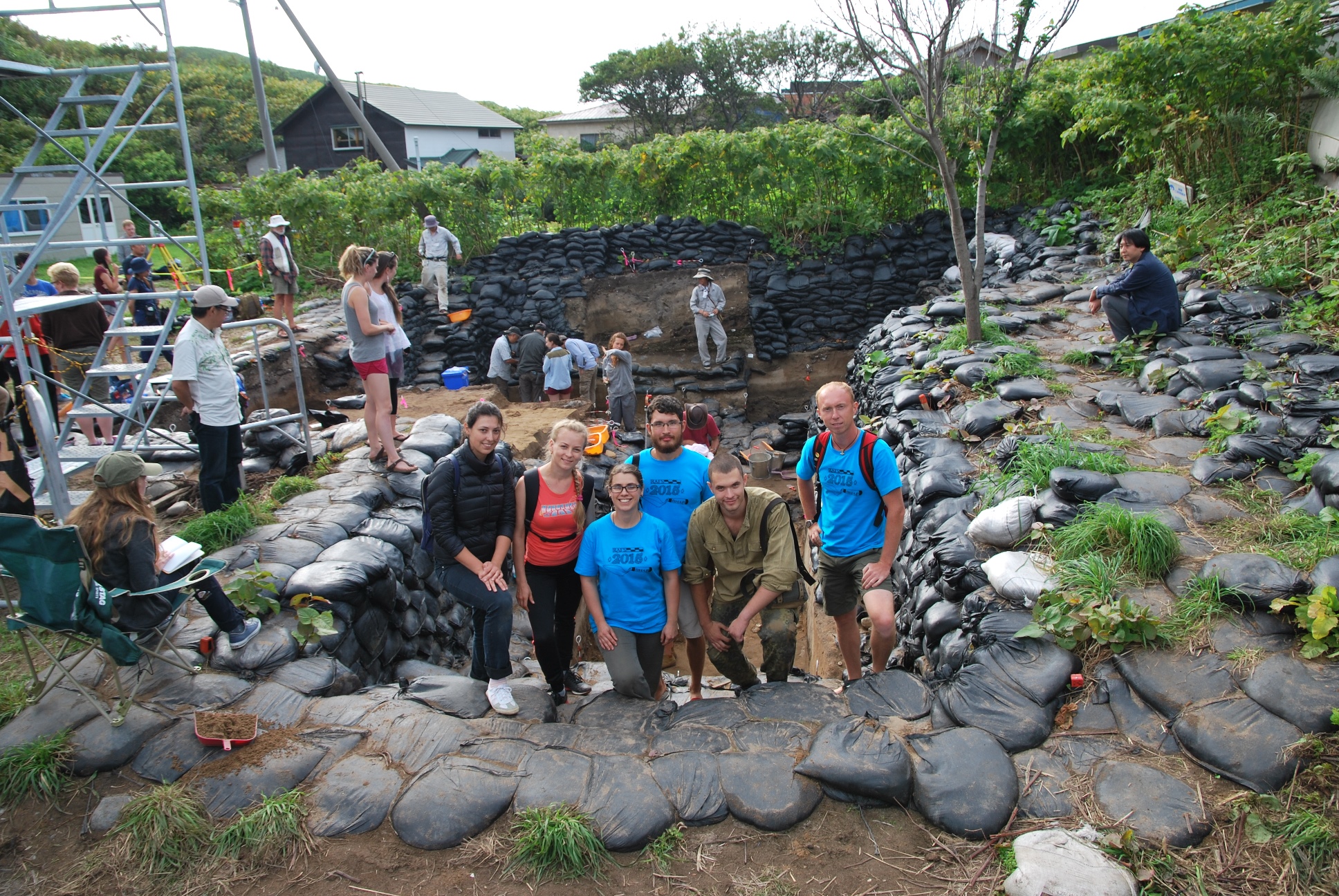On August 15 Dmitry Lokhov, a researcher of archaeology, ethnology and ancient history department, Iliya Ulanov, a master program student of History department, and Ekaterina Samoilova, a master student of Biology and soil studies department left for fieldwork on Rebun island (Japan) under the Russian-Japanese joint program RJE3.
During a week they were engaged in excavations at the site Khamanaka-2 in collaboration with colleagues from Hokkaido University (Sapporo, Japan), Tokio University (Japan), Keio University (Tokio, Japan), Freie Universität Berlin (Germany) and University of Alberta (Edmonton, Canada).
ISU archaeologists have maintained partnership links with Japanese colleagues for 20 years. However, ISU archaeologists take part in fieldwork in Japan for the first time: formerly Japanese partners regularly visited Irkutsk region.
The site Khamanaka-2 has nine levels of archaeological remains ranging from ainu period up to the Late Jomon Epoch (3500 years ago). The Russian team included three specialists from ISU as well as three partners from Far Eastern Federal University (Vladivostok) to explore two square meters.
–We have explored levels 5-8 and managed to find a lot of archaeological remains – stone and bone tools, stone-works waste, as well as ceramic vessels fragments, - History department researcher Dmitry Lokhov tells, - among all the findings the most important one is an obsidian (volcanic glass) knife-edge. I should also note that we have obtained significant experience regarding the organization and techniques used in the fieldwork.
ISU archaeologists are coming back to Irkutsk at the beginning of September. Then they will tell about gained experience and discoveries in detail.
Reference
Irkutsk State University has been the member of RJE3 (“East Russia–Japan Expert Education”) Program Consortium since October 2014.
The five-year-program is aimed at training highly skilled specialists that are capable of playing leading roles in the spheres of education, environmental sustainability, culture and development in Siberia and Far East.
















